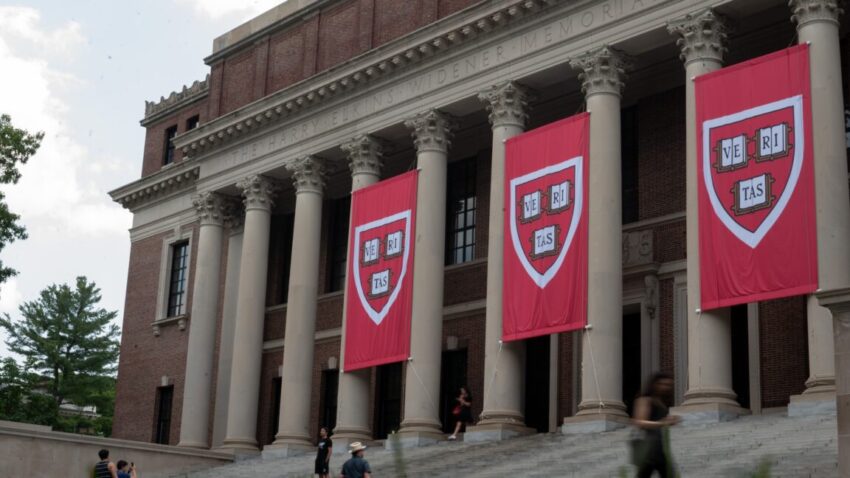
harvard beats trump as judge orders us A federal judge has ruled in favor of Harvard University, ordering the U.S. government to restore approximately $2.6 billion in funding that had been frozen by the Trump administration.
harvard beats trump as judge orders us
Background of the Case
The legal battle between Harvard University and the Trump administration centers on the funding that the university receives from federal sources. This funding is crucial for various programs, including research initiatives, financial aid for students, and operational costs. The Trump administration’s decision to freeze these funds was ostensibly linked to accusations of antisemitism on campus, a claim that has sparked significant controversy and debate.
Harvard, one of the most prestigious universities in the world, has long been a target of criticism from various political factions. The university’s liberal policies and its role in shaping public discourse often place it at odds with conservative viewpoints. The funding freeze was perceived by many as an attempt to undermine the institution’s credibility and influence.
The Ruling
U.S. District Judge Allison Burroughs delivered a decisive ruling in favor of Harvard, stating that the actions taken by the Trump administration were not only unjustified but also politically motivated. In her ruling, Judge Burroughs emphasized that the administration’s use of antisemitism as a rationale for freezing the funding appeared to be a “smokescreen” for a broader ideological assault on the university.
Judge Burroughs noted, “A review of the administrative record makes it difficult to conclude anything other than that Defendants used antisemitism as a smokescreen for a targeted, ideologically motivated assault on this country’s premier universities.” This statement underscores the judge’s belief that the decision to cut funding was not based on genuine concerns about antisemitism but rather on a political agenda aimed at discrediting institutions that do not align with the administration’s views.
Implications of the Ruling
The implications of this ruling are significant, not only for Harvard but also for other universities that may find themselves in similar situations. The decision reaffirms the importance of academic freedom and the autonomy of educational institutions to operate without undue political interference. It also sets a precedent for how federal funding can be used or withheld based on ideological grounds.
Moreover, the ruling could have far-reaching consequences for the relationship between the federal government and higher education institutions. If the Trump administration’s actions are deemed to be politically motivated, it raises questions about the legitimacy of future funding decisions and the potential for similar actions against other universities.
Potential for Appeal
As with many rulings against the Trump administration, this case is expected to be appealed. The administration has a history of challenging decisions that it perceives as unfavorable, and this case is likely to follow suit. Legal experts suggest that the appeal could ultimately reach the Supreme Court, where the justices will have the opportunity to weigh in on the broader implications of the case.
The potential for an appeal raises questions about the future of federal funding for universities and the extent to which political considerations can influence such decisions. If the Supreme Court were to uphold Judge Burroughs’ ruling, it could serve as a significant check on executive power and reinforce the principle that educational institutions should remain free from political coercion.
Reactions from Stakeholders
The ruling has elicited a range of reactions from various stakeholders, including university administrators, students, and political figures. Harvard President Lawrence Bacow expressed gratitude for the ruling, stating that it reaffirms the university’s commitment to academic freedom and the pursuit of knowledge. Bacow emphasized the importance of federal funding in supporting the university’s mission and the impact that the funding freeze could have had on students and faculty alike.
On the other hand, critics of Harvard and the broader academic establishment have voiced their discontent with the ruling. Some conservative commentators argue that the university’s alleged antisemitism should not be dismissed and that the ruling undermines efforts to address these serious concerns. This divide highlights the ongoing cultural and political battles surrounding higher education in the United States.
Context of Antisemitism on Campus
The issue of antisemitism on college campuses has become increasingly prominent in recent years, with various incidents reported across the country. Critics argue that some academic environments foster an atmosphere where antisemitic sentiments can thrive, particularly in discussions related to Israel and Palestine. Supporters of this view contend that universities have a responsibility to address these issues head-on and ensure that all students feel safe and respected.
In contrast, many academic leaders, including those at Harvard, argue that the university is committed to fostering an inclusive environment and that accusations of antisemitism are often weaponized for political purposes. This ongoing debate complicates the narrative surrounding the funding freeze and raises questions about the motivations behind such actions.
The Role of Federal Funding in Higher Education
Federal funding plays a critical role in the operation of universities across the United States. It supports a wide range of initiatives, from research projects that advance scientific knowledge to financial aid programs that make higher education accessible to students from diverse backgrounds. The freezing of such funding can have immediate and long-term consequences for institutions and their ability to fulfill their missions.
In this context, the ruling by Judge Burroughs serves as a reminder of the delicate balance between government oversight and institutional autonomy. It underscores the need for transparency and accountability in the allocation of federal funds and raises important questions about how such funding decisions are made.
Looking Ahead
As the legal battle continues, the implications of this ruling will likely reverberate throughout the higher education landscape. The case could serve as a catalyst for further discussions about the relationship between politics and academia, as well as the role of federal funding in shaping the future of educational institutions.
Moreover, the potential for an appeal means that this issue is far from resolved. The outcome of any subsequent legal proceedings could have lasting effects on how universities navigate political pressures and maintain their commitment to academic freedom.
Conclusion
The recent ruling in favor of Harvard University represents a significant moment in the ongoing struggle between higher education institutions and political forces. As the case moves forward, it will be essential to monitor the developments closely and consider the broader implications for academic freedom, federal funding, and the future of higher education in the United States.
Source: Original report
Was this helpful?
Last Modified: September 5, 2025 at 3:37 am
1 views















